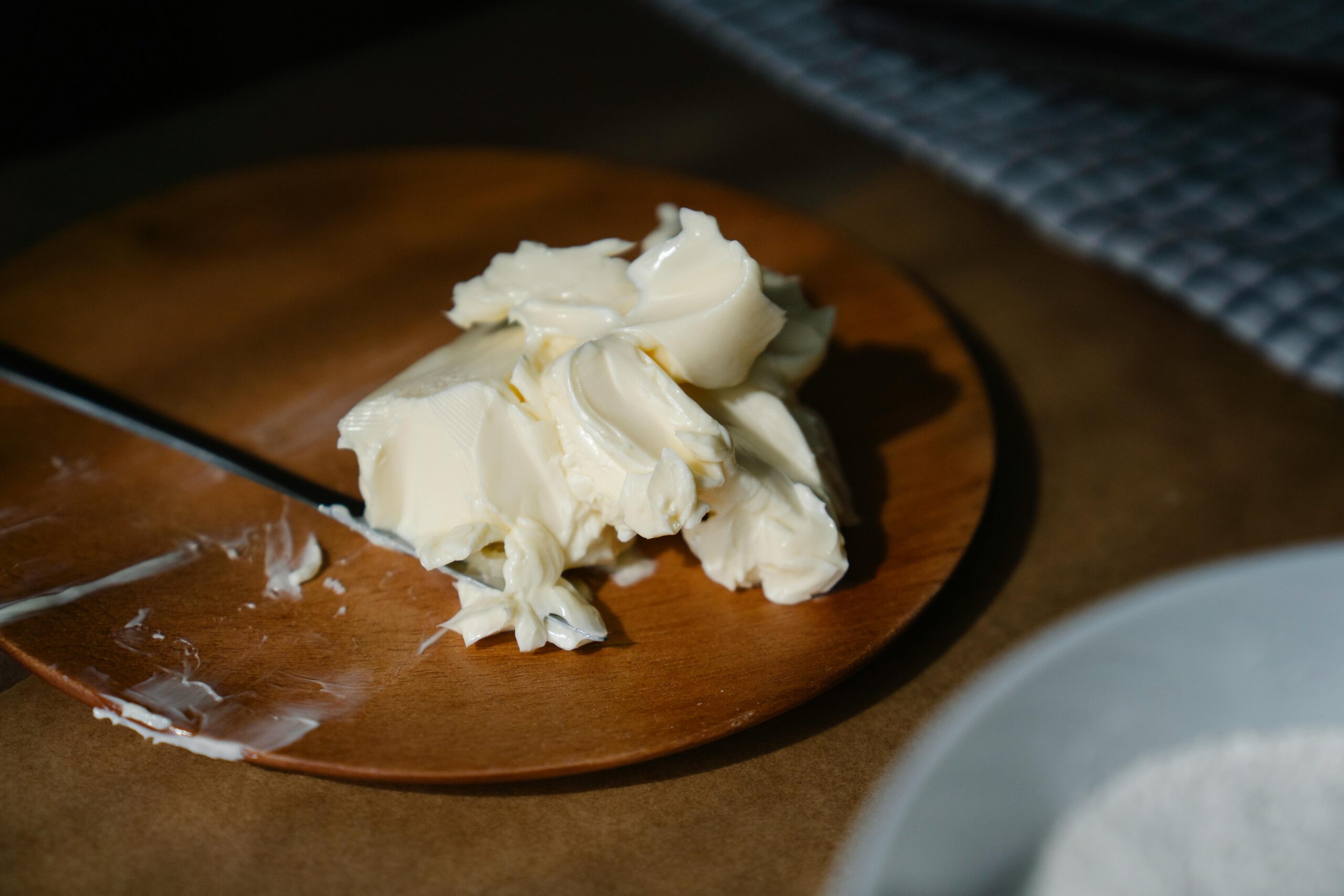Staff Writer Lydia Bruce analyses ‘Butter’, the Waterstones Book of the Year 2024, through the lens of feminist critique, engaging the senses to explore what it takes to be a woman.
On a random Tuesday morning I find myself walking to Borough Market. The only thought on my mind: butter.
I felt like a woman driven mad. Never has a novel had the capacity to entice in me this much of a hunger for such a specific commodity – and hardly even that, given the the thing’s ordinariness. Never had I thought any more about ‘butter’ than as simply something salty I’d spread on toast every once in a while. Yet, there I was, like a frenzied addict, salivating at the thought of overpriced dairy. My feet, one in front of the other, in pursuit of purchase.
As I walked, I could hear the lyrical voice of Yuzuki’s protagonist Kaji reverberating in my mind. Her lavish descriptions of food; her uncomfortable yet all-consuming obsession with flavours and textures; the capacity for the act of eating to elicit joy beyond comprehension. Her words created this new reality for me, where food becomes not just sustenance, but passion, poetry and purpose.
I found myself lost in bewilderment about how a book which details one woman’s passion for a certain product had become so central to my imagination. Then I realised this novel wasn’t at all written to inspire the next generation of foodies – rather, it harbours a much deeper, more painstaking meaning.
Yuzuki’s ‘Butter’ prevails as a sharp commentary on female beauty standards, particularly their intensity and pervasive nature – especially in Japan. The novel entertains and unpacks the origins of the resultant internalised hatred harboured by women whom these standards are indoctrinated into, by no fault of their own. Yuzuki’s message resides in subterfuge, robed by a much simpler story surrounding a bored journalist’s pursuit of an obscure murder case. Throughout the novel, this gambit is untangled, unmasked: shed of its myriad layers.
What has consistently impressed me about books coming from Japan is their characterisation. I haven’t yet encountered a translated piece of Japanese fiction which failed to impress me, in which the characters haven’t wowed me with their detail and immaculate construction. There is something that feels so real about the ways in which Japanese authors place immense emphasis and careful focus onto their heroes. And this is no different when it comes to Asako Yuzuki.
Yuzuki presents her readers with such a wealth of complexity that each character could have their own novel written about them. This is esepcially true for her antagonist, Kaji. Upon introduction, Kaji embodies every physical aspect that a woman in theory should actively despise and strive to move away from. She is immediately stripped of her womanhood due to her voluptuous appearance, with suggestions floating around that she must have “lost herself” or “let go” in some way. Here, it is clear that what is considered “feminine” has nothing to do with anatomy or biology – rather, it is solely the result of socially constructed ideals. Such standards align with pressures and expectations from men. Crucially, Yuzuki perpetuates the message that women are not free subjects in charge of their own identification, but puppets in a box controlled by male strings, by male puppet masters.
This message becomes even more pervasive as the novel continues. As a symbol of the liberation of the female identity, Kaji experiences a sense of incongruence with those around her. She is assured in her own body and way of living to such an extent that she harbours hatred towards almost everyone else due to their pursuit of unrealistic and harmful norms. Her friends, colleagues and lovers are constantly perplexed by how a woman embodying so much of what she shouldn’t be seems to be so content in her identity. They develop a near-fascination for her, as if she was a foreign object in a museum or a glass box – not unlike the prison she is held in throughout the novel’s timeline.
Her main admirer goes by the name Riko and acts as Yuzuki’s protagonist in a sense. A woman who begins the novel trapped in a blind state of alignment with damaging societal expectations (such as her refusal to exceed 55kg, despite never having been overweight), ends in a state of holistic self-approval. Through Kaji’s guidance, her lavish descriptions of food and prevailing self-love and appreciation, Riko too discovers a state in which contentment exists outside of adherance to unrealistic standards. She changes profoundly, as do the readers.
Our expectations of women: transformed. Our perception of self-acceptance: transformed. Our appreciation for the shared female struggle: transformed.
The layers of womanhood are churned into a beautiful blend of what femininity means in the 21st century – much like the very butter Kaji describes. And we are left amazed. We are left salivating.
We find ourselves walking to Borough Market on a random Tuesday morning. The only thought on our minds: butter.
















